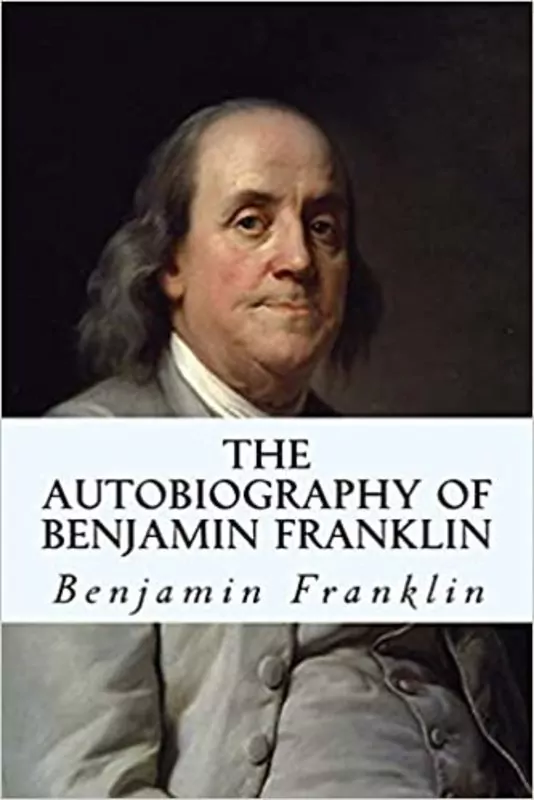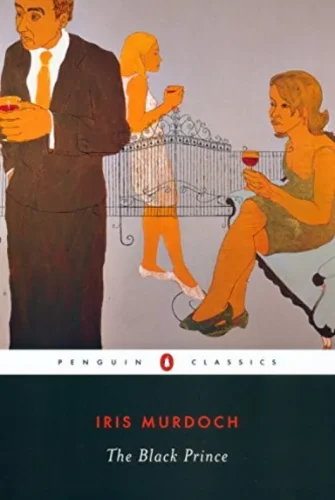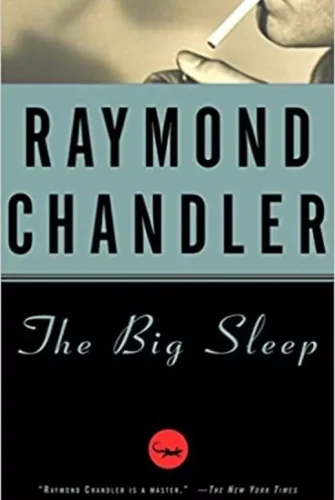In 1706, a young lad born in Boston, destined for greatness, was one of 17 siblings and was projected to enter the clergy by his father, Josiah. However, his fervor for reading and writing steered him in another direction. He departed from his apprenticeship with his sibling, James, following a disagreement, and relocated to Philadelphia.
There, he secured a job with Samuel Keimer, established connections with influential political figures, and later journeyed to England. He spent eighteen months laboring as a printer alongside his associate, James Ralph, from whom he would eventually distance himself. Upon his return to America in 1726, he founded a debating society called the Junto. Just two years later, he assumed control of The Pennsylvania Gazette from Keimer, reshaping it into a successful publication with resources amassed from London. He wedded his childhood sweetheart, Deborah Read, in 1730 and they welcomed two children. The firstborn, William, came about a year later and plays a crucial part in the initial section of his account. Throughout the 1730s, he undertook various minor roles providing printing services for the government.
This era marked the genesis of Poor Richard’s Almanac and his appointment as Philadelphia’s postmaster. Additionally, he devised the Franklin stove and contributed to multiple civic projects including the establishment of the University of Pennsylvania. He retired from printing in 1748, shifting his focus to scientific experiments related to lightning. By 1753, he had been bestowed with honorary degrees from esteemed universities and was appointed Postmaster General of America. When conflict erupted between England and France, he played a pivotal role in coordinating the war efforts and suggesting strategies to secure funding for colonial defense. His account abruptly terminates in 1757, remaining unfinished. He endeavored to complete it on three separate occasions in his lifetime – 1771, 1783–83, and 1788 – yet his demise prevented him from doing so.

Part 1 Section 1
The memoir commences with Benjamin Franklin composing a letter to his son, William Franklin, who was then the royal governor of New Jersey, during his sojourn in a quaint village roughly 50 miles south of London in 1771. He resolves to narrate his life tale to his son, reflecting on the fact that even though his life has been enjoyable, there are minor errors he wishes he could rectify. Nevertheless, since life cannot be rewound, he opts to recollect it and expresses gratitude to God for having led a fulfilling life. Franklin delves into his family lineage, disclosing that he is the youngest of five sons, notwithstanding having two younger sisters. He expounds on his ancestors and shares some verses from his esteemed uncle Benjamin, to whom he owes his namesake. The Franklins, he divulges, have always been a dynamic family, actively engaged in the Reformation in Europe. He then introduces his parents. His father, Josiah Franklin, immigrated to America from England in 1682 with his spouse and three children. He sired four more children with his first spouse and ten more with his second wife, Abiah, after the demise of the first. Benjamin, the fifteenth of Josiah’s seventeen offspring, was born in Boston on January 17, 1706. Benjamin’s siblings were apprenticed to various trades, but he was sent to grammar school to pursue the clergy.
He ultimately switched schools to elevate his writing and arithmetic skills. Despite grappling with arithmetic, his forte lay in writing. However, at the age of ten, he discontinued schooling to work with his father in the soap and candle-making trade. Around this time, he endeavored to construct a wharf using purloined quarry stones but was caught and penalized, assimilating that deceit leads to a dead end. Franklin revered his father, portraying him as a man of “sound understanding and solid judgment,” esteemed in their vicinity. He imbibed the art of debate from Josiah—a skill that would prove invaluable in the days ahead. He laid his parents to rest in a notable Boston cemetery adjacent to Boston Common, where he also erected a monument honoring their memory. Despite his disinclination towards his father’s craft, Benjamin was apprenticed to his sibling James, a printer, at twelve years old. This profession enabled him to indulge in his love for reading, particularly relishing works by John Bunyan, Cotton Mather, and Daniel Defoe. He borrowed copious books from a local book merchant, refining his writing by emulating the styles of professional writers. He struck up a friendship with a “bookish lad” named John Collins, nourishing their debate skills through written exchanges. Concurrently, Josiah aided in honing Benjamin’s writing, culminating in his acquisition of a copy of the British newspaper The Spectator, which facilitated in learning the “method in the arrangement of thoughts.”
Part 1 Section 2
In his youth, Franklin embraced progressive concepts such as dabbling in vegetarianism temporarily and harboring a growing skepticism towards religion. He endeavored to exhibit less conceit after facing criticism, striving to engage in discussions “with pretended modesty.” In 1720, Franklin’s sibling James inaugurated the New England Courant, the second newspaper in America. Franklin, who distributed newspapers for the Courant, assumed the helm when James was incarcerated. However, following a rift, Franklin resolved to step down, prompting James to caution other printers in Boston against hiring him. This compelled Franklin to contemplate relocating for employment. At the age of 17, Franklin clandestinely departed for New York City, but failing to secure work there, proceeded to Philadelphia in search of potential opportunities with a printer named Andrew Bradford. His journey was marked by a tempest wherein he rescued an inebriated man from drowning. He finally reached Philadelphia on October 6, 1723.
There, Franklin secured lodgings through attendance at a Quaker congregation, yet was disheartened when Bradford could not offer him a job. Instead, Bradford introduced him to Keimer, another printer in the city. Eventually, he took up residence with John Read, whose daughter Deborah he would later wed. Franklin commenced mingling with the young populace of Philadelphia and sustained correspondence with his comrade Collins. Impressed by a compelling missive from Franklin, Pennsylvania Governor William Keith agreed to assist Franklin in establishing a printing house. However, Franklin’s father declined to provide financial support during a seven-month journey back to Boston. Franklin elected to return to Philadelphia, accompanied by Collins. Along the way, he encountered challenging incidents, met Governor Burnet of New York, and discovered Collins’ struggle with alcoholism. A dispute ensued, leading to Franklin pushing Collins overboard, after which Collins opted to sail for Barbados, failing to reimburse Franklin the sum owed. Back in Philadelphia, Franklin apprised Keith of his father’s verdict, and Keith resolved to financially endorse Franklin. Franklin then laid the groundwork for a sojourn to England to forge connections in the book and stationery sector. He continued laboring for Keimer, practiced debate and vegetarianism, and initiated a courtship with Miss Read. He also forged friendships with Charles Osborne, Joseph Watson, and James Ralph, forming a small set that relished reading, writing, and debating. Franklin opted to have Ralph accompany him on his voyage to England.
Part 1 Section 3
During his journey to England accompanied by James Ralph, Benjamin Franklin forms a bond with a Quaker named Mr. Denham. Upon arriving in London on the 24th of December, 1724, Franklin discovers that Keith had deceived him by not delivering the promised letter of recommendation. Mr. Denham advises Franklin to seek work at Palmer’s printing house, where he spends the following year. Throughout this period, both Ralph and Franklin lose contact with their families and engage in a daring lifestyle. Franklin develops a friendship with Wilcox and they make plans for a small lending library. He also publishes a brochure that catches the attention of a renowned surgeon, leading to introductions to influential individuals in London. As for Ralph, he falls in love, relocates to rural areas, and starts teaching. Tensions arise in his friendship with Franklin due to his poetic pursuits and misunderstandings with his girlfriend. Franklin’s competence leads to a promotion and salary increase. He moves to a new residence and enjoys the company of his landlady.
He even considers opening a school for swimming. After eighteen months in London, he returns to Philadelphia persuaded by Mr. Denham. Upon his return, he finds Keith demoted and Keimer offering him a managerial position. Initially declining, Franklin accepts the job after Mr. Denham’s demise. Despite workforce departures, he maintains a positive relationship with those who remain. When Keimer attempts to cut his pay, Franklin resigns and decides to take over Keimer’s failing printing business with his associate Meredith. Meanwhile, Keimer relocates to New Jersey, offering Franklin an opportunity to expand his connections. Amidst his professional responsibilities, Franklin embraces Deism and establishes a group called Junto for philosophical and moral conversations. Franklin’s diligence saves his newspaper from financial ruin, eventually leading him to acquire Keimer’s struggling publication. He becomes the official printer for the Pennsylvania Assembly and uses his earnings to settle his debts. Meredith leaves, and Franklin expands his enterprise by hiring Coleman and Grace. A government debate on paper currency prompts Franklin to publish a relevant brochure. His services are further utilized to print additional government materials following the House’s endorsement of paper currency. Contemplating marriage, Franklin weds his former love, Miss Read, despite societal criticism. Together, they launch the first subscription library in America. Franklin temporarily halts his autobiography to focus on the evolving American Revolution.
Part 2
The second section begins with two letters addressed to Franklin. The initial letter is from Mr. Abel James, offering feedback on Part One of the Autobiography and Franklin’s proposed outline for the remainder of the work. Dated 1782, James encourages Franklin to complete his autobiography. The second letter, written by Benjamin Vaughn in January 1783, also motivates Franklin to persist with his book, suggesting that it could inspire others seeking self-improvement once published. Vaughn argues that the publication of the Autobiography could showcase the virtue and industry of the American people to the English, highlighting America’s economic potential. At this point, Franklin is writing from France, where he served as a diplomat post-Revolution. He reflects on his past accomplishments, particularly the successful establishment of a library in 1730. He mentions importing books from England due to the lack of quality bookstores in Philadelphia, acknowledging the role his library played in promoting reading and familiarizing people with books. Despite these achievements, Franklin modestly underplays his contribution to the library’s initial success to prevent potential resentment. Concurrent with the library’s creation, Franklin is building a family with his wife, formerly Miss Read. He uses the library to enhance his own intellectual development while supporting his family through diligence and thrift. As a committed Deist, Franklin respects all faiths and disapproves of religious conflicts. He refrains from public worship and challenges certain Christian interpretations of morality.
Driven by a continuous quest for self-improvement, Franklin embarks on the ambitious goal of attaining “Moral Perfection,” outlining a sequence of 13 virtues to cultivate: Moderation, Tranquility, Sincerity, Justice, Cleanliness, Chastity, Silence, Temperance, Humility, Industry, Resolution, Frugality, and Order. He designs a weekly regimen to master each virtue, tracking his progress and setbacks in a small journal, and establishes a daily routine to instill discipline. Despite initial challenges, Franklin progressively corrects most flaws, although mastering Order proves particularly arduous due to his sharp memory. He acknowledges his inability to flawlessly embody all virtues, concluding that “a speckled axe is best… A kind man should accept a few faults to maintain his friends’ dignity.” While perfection eludes him, his pursuit of these virtues enhances his happiness. Franklin posits that his virtues should resonate across diverse religious beliefs, emphasizing practical benefits rather than moral edicts. He reveals that Humility was the final virtue added after criticism from friends regarding his arrogance. To practice humility, he adopts less assertive language in conversations, finding it improves his interactions. Yet, he admits struggles in suppressing his pride, humorously noting becoming proud of his humility. In 1784, Franklin temporarily suspended his autobiography, resuming writing in America four years later in August 1788.
Part 3 Section 1
In August 1788, after a four-year hiatus from writing Part Two and 17 years since completing Part One, Franklin returned to his work from his American abode. In 1731, he envisions an exclusive international political organization centered on Virtue, accessible only to the wise. Crafting the party’s principles, which encompass a succinct compilation of the fundamental tenets of all major religions like belief in God’s omnipotence, perpetuity, and existence. Members would adhere to the thirteen virtues from Part Two, religious guidelines, and commit to serving humanity. However, due to time constraints and other obligations, he abandons the plan. In 1732, Franklin established Poor Richard’s Almanac, a 25-year publication intended to educate and entertain the general populace. The almanac features popular sayings like “An empty bag cannot stand upright.” His newspaper, The Pennsylvania Gazette, which accounts for over 50% of his income, serves a comparable educational purpose. He diligently upholds the paper’s integrity by excluding personal disputes and harmful content. As he matures, Franklin engages with diverse political issues, advocating for women’s education, particularly in financial matters. An avid learner, he acquires proficiency in French, Italian, Spanish, and Latin, proposing Latin be taught after English rather than directly following it. He indulges in chess regularly and initially supports his local Presbyterian congregation, only to withdraw his backing upon discovering the parson’s plagiarized sermons. Franklin’s life is marked by challenges, including the loss of his four-year-old child. Despite adversities, he revisits Boston to reconcile with his family and brother, James, offering assistance with typesetting.
Back in Philadelphia, Franklin’s debating society, the Junto, stretches into various locations nationwide. He carried on his typographic work, acting as the Clerk of the General Assembly of Pennsylvania in 1736. By 1737, he assumed the role of Deputy Postmaster of Philadelphia, ensuring his Gazette was dispatched. In 1753, he rose to the position of Postmaster General. Franklin gradually shifts his focus toward societal enhancement and public affairs. He suggests a land tax to better finance the police, publishes a pamphlet on fire causation, and assists in establishing America’s premier modern fire department, the Union Fire Company. Developing a reputation in the 1730s, Franklin closely observes the Great Awakening, a spiritual revival emphasizing heartfelt involvement, spearheaded by captivating preachers like Jonathan Edwards. In 1739, after meeting the influential English preacher, Rev. Whitefield, Franklin observed individuals’ transition from religious apathy to zealotry. Moved by Whitefield’s compelling speeches, Franklin generously donates to an orphanage in Georgia, even though he preferred its location in Philadelphia. Nevertheless, he critiques Whitefield’s literary style.
part 3 section 2
As the years pass, Franklin’s prosperity grows. His newspaper thrives, and his print shop in the Carolinas prospers. Despite an initial setback, Franklin, with the assistance of the Junto, eventually established the “Academy” which later evolved into the University of Pennsylvania in 1755. Concurrently, Franklin produces a pamphlet, Plain Truth, emphasizing the colonies’ feeble defense and the imperative for unity. A system of lotteries is devised to generate funds for defense, though fundraising proves challenging due to the pacifist Quaker population. Franklin’s ingenuity leads to the invention of the stove in 1742, which he graciously declines to patent. Subsequently, he assumes the role of Commissioner of the Peace, then a member of the Pennsylvania Assembly. His duties include negotiating treaties with the American Indians, and he expresses sorrow over the detrimental effects of alcohol on certain tribes. Alongside his comrade Thomas Bond, Franklin conceives the idea for a hospital and drafts the bill for its financing.
He also provides counsel on the construction of a new Presbyterian meeting house. His civic contributions continue with the establishment of a street cleaning service and a bill for city paving and illumination. Franklin’s societal endeavors garner him honorary degrees from esteemed universities such as Harvard and Yale. In 1754, amidst the impending war between England and France, Franklin presented plans for colonial defense and governmental structure during times of conflict. His undertakings raise concerns within the English government regarding potential colonial self-sufficiency, prompting them to dispatch reserve troops to America. Franklin’s duties expand to coordinating the gathering of wagons for the war, amassing 150 in a fortnight. He then focuses on elevating troop spirits through care packages. Despite his admiration for British Generals, he criticizes their severe treatment of American troops. Franklin also voices frustration over the challenges of obtaining reimbursements from the military bureaucracy, yet he persists in his role as a financial commissioner for military funding, organizing the militia and fort construction. Franklin’s services earn him the title of Colonel, which is later revoked by the British. He subsequently shifts his focus to supplying and maintaining army provisions.
part 3 section 3
Franklin transitions from recounting his military escapades to delineating his scientific pursuits. In 1746, he commenced conducting scientific experiments, gradually formulating the then-ridiculed theory that thunderbolts and electricity are synonymous. His published papers, including his renowned kite experiment, are translated into numerous languages, propelling him to international renown and earning him a medal from the esteemed Royal Society. During this period, he forges a friendship with Pennsylvania’s new governor, Capt. Denny. In 1756, the Pennsylvania Assembly appointed Franklin as the Commissioner to England, a position he secured primarily due to his global scientific reputation. His task entails advocating for colonial rights with the Crown, following an Assembly petition. Simultaneously, he works towards enhancing the colonies’ defense system while monitoring the war, which ultimately favors the British. He also shares his perspectives on various military leaders. After numerous delays and additional expenses in New York, Franklin finally departs America. During the voyage, he records his observations on shipbuilding and recounts a pursuit by French warships. After briefly exploring the English countryside, he arrived in London on July 27, 1757.
part 4
Part Four succinctly recounts Franklin’s 1757 visit to London and the significant events of that period. He briefly encounters his former English associates, yet his diplomatic endeavors are not entirely fruitful. The President of the King’s Privy Council informs him, “The King is the legislator of the colonies,” dismissing Franklin’s pursuit of colonial legislative rights. Franklin argues for the importance of colonial Assemblies and their legislative authority, but his arguments go unheeded. He perceives his treatment in meetings as discourteous, harboring resentment against the British diplomats. He finds himself defending American taxation laws in a British court, nearly reaching a compromise. His return to Philadelphia in 1762 was marked by the Assembly thanking him for advocating colonial interests in Britain. The writing of the Autobiography then halts, and Franklin passes away two years later without completing it.


